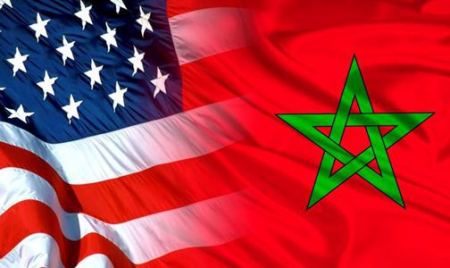 When it comes to traveling abroad, safety is one of the top concerns for many people, especially Americans. With its rich culture, historic cities, and breathtaking landscapes, Morocco has become an increasingly popular destination for travelers. But with any international travel, the question remains: Is Morocco safe for Americans? In this article, we’ll explore various aspects of safety for U.S. citizens, covering everything from crime rates to cultural differences, local tips, and travel advice. Whether you’re planning a trip to explore the deserts, markets, or coastlines of Morocco, it’s essential to have a clear understanding of the safety landscape.
When it comes to traveling abroad, safety is one of the top concerns for many people, especially Americans. With its rich culture, historic cities, and breathtaking landscapes, Morocco has become an increasingly popular destination for travelers. But with any international travel, the question remains: Is Morocco safe for Americans? In this article, we’ll explore various aspects of safety for U.S. citizens, covering everything from crime rates to cultural differences, local tips, and travel advice. Whether you’re planning a trip to explore the deserts, markets, or coastlines of Morocco, it’s essential to have a clear understanding of the safety landscape.
Introduction to Morocco as a Travel Destination
Morocco is a country known for its vibrant history, colorful souks, and stunning landscapes that range from the Atlas Mountains to the vast Sahara Desert. It has long attracted tourists seeking to immerse themselves in a unique blend of Arab, Berber, and European cultures. But as an American, you may wonder: Can I enjoy all of this while feeling secure? Let’s break it down.
General Safety Overview for Americans in Morocco
The safety of tourists in Morocco largely depends on the region, the time of day, and your level of awareness. Overall, Morocco is considered a safe destination for Americans, but like any country, it’s not without its risks.
2.1 Crime and Petty Theft
Petty theft, such as pickpocketing and bag snatching, is the most common crime affecting tourists in Morocco. This can be especially prevalent in crowded tourist areas like Jemaa el-Fna in Marrakech or the Medina in Fes. It’s a good idea to stay vigilant and keep your belongings secure. However, violent crime is rare, and most of the issues tourists face are low-level thefts.
2.2 Terrorism Threats and Political Stability
While Morocco has experienced occasional threats from terrorist groups, the country remains relatively stable compared to many other regions. The Moroccan government has made significant strides in improving security in major cities and tourist destinations. The U.S. Department of State monitors these risks closely, issuing updates as needed. Although the risk is considered low, it’s always advisable to stay informed about any potential issues.
Cultural Considerations and Respect
Understanding the local culture can go a long way in helping you stay safe while traveling in Morocco. The country’s social norms may differ greatly from those in the United States, so being aware of these differences will help you avoid unintentional misunderstandings.
3.1 Gender Roles and Expectations
Morocco is a predominantly Muslim country, and the cultural expectations surrounding gender roles are more conservative than what many Americans are used to. While Morocco is relatively liberal compared to some other countries in the region, it’s important for female travelers, in particular, to be aware of the local customs. For instance, while it’s not illegal for women to wear Western clothing, modesty is valued, and overly revealing clothing might attract unwanted attention.
3.2 Appropriate Behavior in Public Spaces
Moroccans value privacy and modesty, so public displays of affection between couples are discouraged, particularly in rural areas. When visiting religious sites, such as mosques, women may be asked to cover their heads, and everyone should dress modestly. Respecting these cultural norms helps foster good relations with locals and minimizes the likelihood of conflict.
Health and Medical Safety
While Morocco is generally safe in terms of health, it’s always a good idea to take some basic health precautions before traveling.
4.1 Vaccinations and Health Precautions
Before heading to Morocco, it’s recommended to get vaccinated for diseases such as hepatitis A and B, typhoid, and tetanus. Malaria is not a significant concern in most tourist areas, but if you plan to visit rural or desert regions, check with your healthcare provider for any additional recommendations. Additionally, always drink bottled or filtered water to avoid stomach issues.
4.2 Access to Medical Care
Morocco’s healthcare system is decent in major cities like Casablanca, Marrakech, and Fes. However, outside urban areas, medical care can be more limited, so having travel insurance that covers medical emergencies is a wise decision. Pharmacies are widely available, but in remote locations, getting access to advanced care may take time.
Transportation and Travel within Morocco
One of the key aspects of staying safe in Morocco is understanding how to navigate the country’s transportation system.
5.1 Road Safety and Driving Conditions
Driving in Morocco can be a bit of a challenge for those unaccustomed to chaotic road conditions. Road signs are often in Arabic or French, and local driving habits can be aggressive. While major highways between cities are generally safe, be cautious when driving in smaller towns or rural areas where roads might not be well-maintained.
5.2 Public Transportation Safety
Public transportation in Morocco is relatively affordable and convenient, with buses and trains connecting most major cities. However, crowded buses or train stations can be hotspots for pickpockets. Always keep a close eye on your belongings when using public transport. Is Morocco Safe for Americans
Tips for Staying Safe in Morocco
Here are some practical tips to ensure a safe and enjoyable trip:
6.1 Avoiding Common Scams
Morocco is not immune to scams targeting tourists. Common scams include overpriced taxis, unlicensed guides offering services, and shopkeepers inflating prices for tourists. Always negotiate prices beforehand and avoid accepting unsolicited offers from strangers. Stick to reputable companies for tours or transportation.
6.2 What to Do in Case of an Emergency
If you find yourself in an emergency, the number to call for police assistance in Morocco is 19. For medical emergencies, dial 15. It’s also a good idea to have your embassy’s contact information handy in case you need assistance. The U.S. Embassy in Rabat can help with various issues, from lost passports to legal matters.
Morocco’s Response to International Travelers
Morocco is keen to maintain a positive reputation as a tourist-friendly destination. The government has made significant investments in infrastructure and security to ensure the safety of both locals and visitors. The tourism industry plays a significant role in Morocco’s economy, and the country is continuously working on improving its image on the global stage.
Government Travel Advisory for Americans
The U.S. Department of State provides detailed travel advisories for American citizens. While Morocco’s safety rating is generally favorable, it’s important to check for any travel warnings or updates before departure. Is Morocco Safe for Americans
Safety in Morocco’s Popular Tourist Destinations
9.1 Marrakech
Marrakech is a bustling, vibrant city known for its history, architecture, and markets. While generally safe, be mindful of busy areas like Jemaa el-Fna and the Medina, where petty theft can occur. Always keep your belongings close and avoid walking alone late at night.
9.2 Fes
Fes, another historical gem, offers a more traditional Moroccan experience. While Fes is relatively safe, it’s a good idea to hire a guide when exploring the narrow, labyrinthine streets of the Medina.
9.3 The Sahara Desert
For those traveling to the Sahara Desert, safety can be a concern due to the extreme climate and remote conditions. Always travel with a reputable tour guide who knows the area well, and be prepared for the harsh environment by bringing adequate supplies.
The Role of the U.S. Embassy in Morocco
The U.S. Embassy in Rabat plays a crucial role in assisting American citizens traveling in Morocco. They provide essential services, including help with lost passports, legal assistance, and guidance during emergencies. Registering with the embassy’s Smart Traveler Enrollment Program (STEP) is a great way to stay informed about safety updates and alerts.
What Americans Say About Safety in Morocco
Many American tourists who have visited Morocco report feeling safe and welcome. However, some common concerns include the high pressure to buy goods in markets and the occasional harassment, particularly for female travelers. That said, most visitors leave with positive memories of their experiences.
Conclusion: Is Morocco Safe for Americans?
Overall, Morocco is considered a safe destination for American travelers. By staying aware of your surroundings, respecting local customs, and taking common-sense precautions, you can enjoy a wonderful experience in this vibrant country. Whether you’re exploring the ancient streets of Fes, riding camels in the Sahara, or bargaining in the souks of Marrakech, Morocco offers a fascinating journey full of rich culture and warm hospitality.
FAQs
- Is it safe to travel alone in Morocco as an American?
- Yes, it is generally safe for solo travelers, though it’s important to take precautions, especially at night or in crowded areas.
- What should I avoid in Morocco?
- Avoid public displays of affection, particularly in rural areas, and be cautious when accepting unsolicited offers of help from strangers.
- How do I stay safe in Morocco’s busy markets?
- Keep your belongings secure, be wary of pickpockets, and negotiate prices before making any purchases.
- Are there areas in Morocco I should avoid?
- While most of Morocco is safe, it’s best to avoid politically sensitive areas or regions near borders, as they can have higher security risks.
- Do I need travel insurance when visiting Morocco?
- Yes, it’s highly recommended to have travel insurance that covers medical emergencies, trip cancellations, and lost belongings.

